
Empresa Líneas Marítimas Argentinas (ELMA) was an Argentine cargo shipping line formed on September 30, 1960, after Juan Perón nationalised the shipping industry. The Argentine Maritime Lines Company involved the merger of two companies, both state: the Merchant Fleet of the State (FME) and Argentina Fleet of Navigation of Ultramar (FANU). It served Argentina's foreign trade until the 1990s, when the government of Carlos Menem declared its dissolution. At its peak its fleet had more than 60 ships. Ships sailed to Northern Europe, the United Kingdom, the Baltic Sea, the Mediterranean, the east coasts of the United States of America and Canada, the Gulf of Mexico, the Pacific, the Middle East and Far East and Africa.

The Port of Buenos Aires is the principal maritime port in Argentina. Operated by the Administración General de Puertos, a state enterprise, it is the leading transshipment point for the foreign trade of Argentina.
Visitors to Argentina must obtain a visa from one of the Argentine diplomatic missions unless they are citizens of one of the visa-exempt countries.
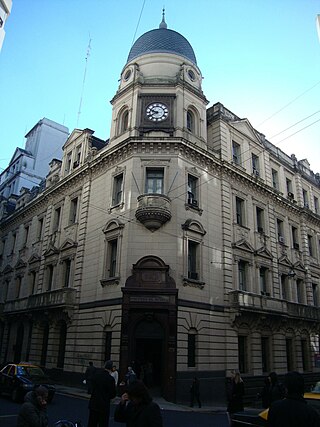
The Secretariat of the Interior of Argentina is a secretariat of the national executive power that manages issues pertaining to domestic politics such as immigration and co-ordination between the federal government and the governments of the provinces of Argentina.

The Federal Intelligence Agency mostly known for its abbreviation AFI, was the principal intelligence agency of Argentina.
The Army General Staff is the supreme staff of the Argentine Army. It is based at the Libertador Building, Buenos Aires. The current chief is the brigadier general Carlos Alberto Presti.

The Legal and Technical Secretariat of the Presidency of the Argentine Nation is a secretariat of state of the Argentine National Executive counting with ministerial level, tasked with assisting the President of Argentina, the Chief of the Cabinet of Ministers and all other dependencies of the President's Office that may not count with their own legal departments on the drafting of decrees, legislative bills, administrative decisions and legal messages.
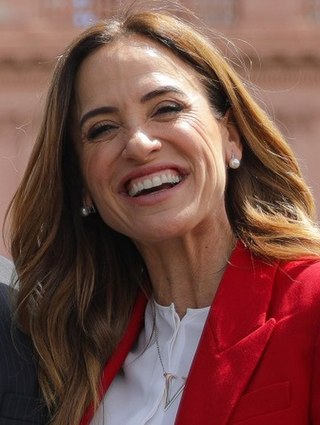
Victoria Tolosa Paz is an Argentine politician and public accountant. From 2022 to 2023, she served as Minister of Social Development in the cabinet of President Alberto Fernández. Since 2023, she has been a National Deputy elected in Buenos Aires Province, a position she previously held from 2021 to 2022.

The Falklands Naval Station was the main base of the naval component of Argentina in the Falklands Islands, during the South Atlantic conflict of 1982.

United Republicans is a political party from Argentina, founded on November 9, 2020, with its main representative being Deputy Ricardo López Murphy. The party has definitive legal status in the Autonomous City of Buenos Aires, Province of Córdoba, and in the Province of Tierra del Fuego, in addition to having the provisional one in the province of Corrientes and in the Province of Buenos Aires.
Luis Pedro Horacio Sánchez Moreno was an Argentine soldier, belonging to the Argentine Navy, who reached the rank of counter admiral. He served as Naval Commander of the River Area, Director of Naval Instruction and ambassador to Peru during the military dictatorship known as the National Reorganization Process.
The Ministry of Infrastructure of Argentina was a ministry of the national executive power responsible for public works, housing, communication and transport.

The Ministry of Human Capital of Argentina is a ministry of the national executive power responsible for labour, education, culture and social welfare.
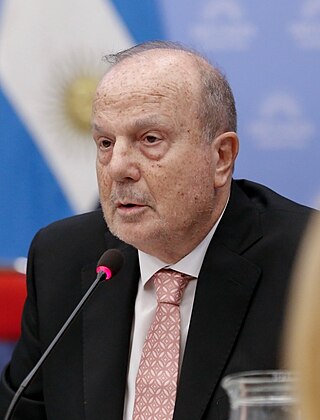
Guillermo José Ferraro was an Argentine accountant, businessperson and politician who was appointed Minister of Infrastructure on 10 December 2023 by President Javier Milei. On 27 January 2024, Milei stated that Ferraro would be presenting his resignation within the next few days. Ferraro's resignation was officially accepted by the government on 5 March 2024.
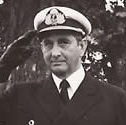
Rubén Oscar Franco is a retired Argentinian military officer who held power as a member of the Argentine Military Junta from 1982 to 1983. Representing the Argentine Navy, he took power after the Falklands War, later yielding this power to a new legally constituted government headed by Raúl Alfonsín.
María Victoria Villareal is the placeholder name used on the Argentine Documento Nacional de Identidad (DNI), analogous to "Erika Mustermann" in Germany. This fictitious name is utilized to demonstrate the format and features of the DNI in official documents and educational materials.
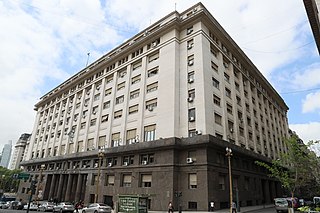
The Secretariat of Transport of Argentina is a national executive agency that managed transportation issues, including land, air, and sea transportation within the country.

The Ministry of Deregulation and State Transformation of Argentina is a ministry of the national executive power. Its purpose is to help the president and chief of the Cabinet of Ministers in matters related to deregulation, reform, and modernization efforts.













